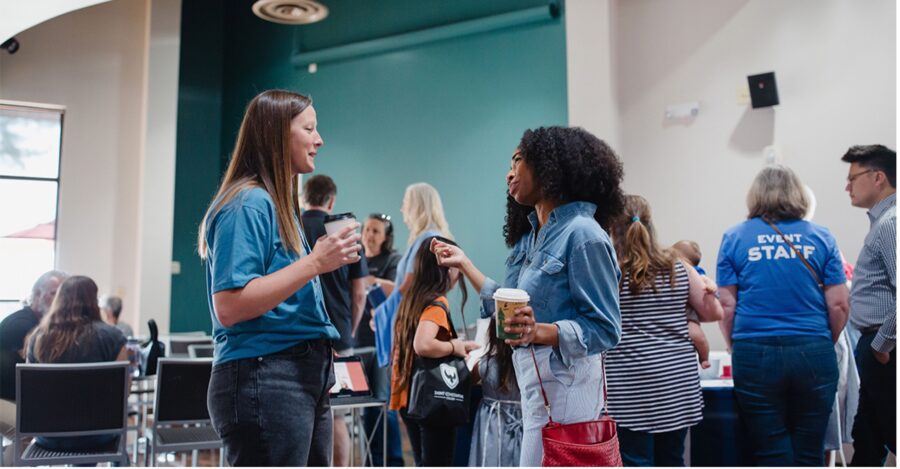In the fall of 1979, when I was a senior in high school, my youth pastor took me and three other students on a tour of several colleges. I had never heard of a “road trip,” and this was my first. We left Greensboro, NC on a Wednesday in October. First, we arrived at Cedarville College in Cedarville, Ohio. I remember it as a quiet, well-mannered place, and of course, we were well-mannered—if not quiet—seniors. Next we went to Taylor University in Upland, Indiana. As I remember, it was spread out over what seemed to be vast acreage. Walkways to the various buildings stretched out into the distance as we followed our tour guide. Our next stop was Asbury College in Wilmore, Kentucky. This institution included both an undergraduate college and a seminary. It had a different “flavor” because of the mix of graduate students with the undergraduates. Finally, we stopped at Bryan College in Dayton, Tennessee. At Bryan we had a small reunion with some of our friends who had graduated from our youth group.
After all these years, that trip still holds fond memories for me. It was my first real introduction to college life; I learned important lessons about life beyond my hometown.
• Road trips are fun. I had a blast traveling to unknown regions with my friends. Our relationships grew deeper.
• Dirt is black in the Midwest. Where I come from, dirt is red. When I saw the plowed fields, I thought they had been burned somehow. Nope. It’s just black dirt.
• College students are normal people. Okay, normal may be a stretch, but at least they were not as different from me as I thought they might be.
• Dorms have a unique culture. There is nothing like a hall full of eighteen- and nineteen-year-old men for generating fun. With no parents around, you can see who is really responsible. And who is not.
• All tap water is not equal. At one college, my shower seemed to take twice as long, because the water was strange. They must have treated the water with a softener.
• You can learn a lot by talking to the students. They will tell you what they have experienced, both good and bad.
• College is fun. Spending only eighteen hours per week in the classroom leaves a lot of time for sports, mealtime conversations, staying up late, pulling pranks, and, of course, studying.
• Colleges have unique qualities. One college had a concert while we were there. One seemed to be out in the middle of nowhere. More than one seemed to be the heart of the town. The course work at one school appeared to be an academic cakewalk compared to my high school work. One college was woven together with a graduate school. I learned that every school has a discernible personality.
I never applied to any of the schools, but I gained a better understanding of college life and what mattered to me. I began to imagine life away from home.
Thirty-four years later, I have one daughter in college and another on track for college in the fall of 2015. As a parent in the midst of the college process, I have learned important lessons.
First, it is not like it used to be. My application to Wake Forest was hammered out on a typewriter. Technology now drives the process. Today, students apply to college and find scholarships online. They receive SAT results via email. Even college interviews can be Skyped. The technology not only streamlines the application process, it makes college research a snap. With a few clicks, students can compare colleges in terms of size, demographics, academic challenge, cost, and programs offered. They can even research specific professors and discover their reputations among former students.
Second, it is not too early to look at colleges. The more exposure students have to various colleges over the years, the more they will know what to look for in a college. I plan to take my younger daughter to visit several schools, along with other young people in our youth group. Yes, I am trying to relive my senior year road trip. Back off.
Finally, it is not too early to work on high school transcripts. Keeping an up-to-date transcript allows the parent to produce the necessary paperwork for a student’s application at any point. Some colleges allow early acceptance applications during a student’s junior year. Typically, students apply during the fall of their senior years. Having a ready-to-send transcript may allow the student to submit his application earlier and increase his chances of being accepted.
When I was eighteen, college was the next step in life. I never considered any alternative. Today, options abound for graduating high school seniors: mission trips, gap years, internships, military service, apprenticeships, online learning, starting a business, and more. College serves as one choice for high school graduates. Exploring colleges can help students find the path God has for them. Ready for a road trip?




